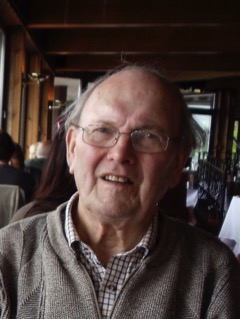Being Heavenly-Minded

Ted achieved that status 25 years ago when my dad passed away in Scotland at the end of a wonderful anniversary trip. My brothers and I were thousands of miles away, but Ted was on site and came alongside my mother, helping to care for the necessary arrangements until I could get there just barely in time for the memorial service. Though we didn't see each other often, I will miss him, and his death has me thinking again about what is and what will be.
Such thinking, I have decided, is healthy in spite of the fact that it may be rare. My train of thought was pushed further along the track this morning when I came across a quote from C. S. Lewis (Mere Christianity) who observed that "the Christians who did most for the present world were just those who thought most of the next." It is an observation that flies in the face of contemporary wisdom. It is a difficult truth that I cannot fully know heaven until I get there; whatever it will be, it will be better than I can imagine. But even with an incomplete and imperfect knowledge, focusing on what will be makes me more effective in handling what is.
I don't much like funerals, but they have an undeniable value for me whether I actually attend them or not. They confront me with the need to think about what will be and not just about what is. Lewis went on to say, "It is since Christians have largely ceased to think of the other world that they have become so ineffective in this. Aim at heaven and you will get earth thrown in; aim at earth and you will get neither.
He was right. Lord, keep me aimed at heaven.
blog comments powered by Disqus